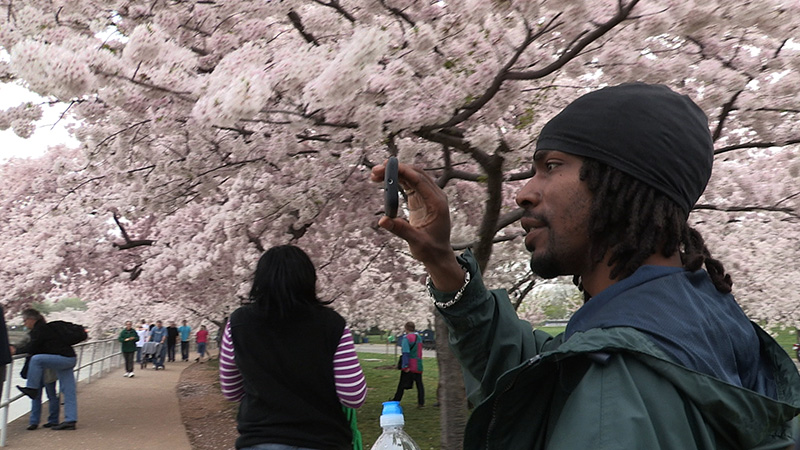As part of the Visiting Filmmakers Series, the Film and Media Studies program, along with other university departments at Mason, hosted a screening of “City of Trees” Nov. 9.
In a Q&A with the filmmakers following the screening, brothers Lance and Brandon Kramer shared with students the process of making their first feature film, “City of Trees.” They also discussed their most recent project, “The Messy Truth,” which focuses on starting healthy conversations in the aftermath of a hyper-political election season.
 “City of Trees” tells the story of a nonprofit after it receives a stimulus grant through the American Recovery and Reinvestment Act in 2010. This grant allowed for the hiring of 150 unemployed Washingtonians to help them gain the skills needed to get a job by planting trees and revitalizing parks in D.C. neighborhoods. But six months before the grant was set to expire, both staff and trainees faced not only the uncertainty of what would happen to this program and its employees, but also the challenge of trying to connect with and bring change to a community in the District that is often left neglected.
“City of Trees” tells the story of a nonprofit after it receives a stimulus grant through the American Recovery and Reinvestment Act in 2010. This grant allowed for the hiring of 150 unemployed Washingtonians to help them gain the skills needed to get a job by planting trees and revitalizing parks in D.C. neighborhoods. But six months before the grant was set to expire, both staff and trainees faced not only the uncertainty of what would happen to this program and its employees, but also the challenge of trying to connect with and bring change to a community in the District that is often left neglected.
The idea for “City of Trees” came to the brothers when they started their search for a story after starting their own production company, Meridian Hill Pictures, in 2010. It was then that Lance and Brandon met Washington Parks and People, the nonprofit that is the center of their film and which is aimed at reducing chronic unemployment though a green job-training program for residents in Southeast D.C. There they met Charles Holcomb, one of the program’s trainees who would later become a leading participant in their film.
“We were so fascinated by Charles,” Brandon said. “He was at this moment in his life where he was about to have his first kid, this was the first stable job that he had had for a while, he was so filled with hope and optimism and was coming from such a difficult painful point.”
So they set out to capture a character-driven account of the challenges of living in a city with high unemployment rates.
The film touches on themes of unemployment in urban areas, community distrust of outsiders and the difficulty organizations have to push for change with limited resources. As the staff and trainees navigate these issues, the film does not try to generalize or offer a solution.
“It’s a starting point, not an answer, not an end,” Lance said.
Instead it gives an unobstructed and nuanced view into the challenges D.C. residents had to confront in the years following the recession. The character-driven storytelling that carries the film shows that there is immense value in simply being able to peek into the day-to-day lives of others.
There are the heartfelt moments as Charles prepares for fatherhood, the letters and pictures he sends to his brother in prison and his perseverance in looking for a stable job. It also gives a view into the shoes of the organization’s director, Steve Coleman, who, unlike members of the training program, has a secure job and a life that Charles strives for but is equally anxious about the prospect of losing the program as the grant comes to an end.
The filmmakers said their decision to present personal stories with an observational approach was deliberate because in a 76-minute film, “The story is not going to answer everything,” Brandon said. “It’s not going to provide you with all the context you need.”
Read the rest of Carola Patty Gorena Morales' article here, at IV Estate.
November 16, 2016
